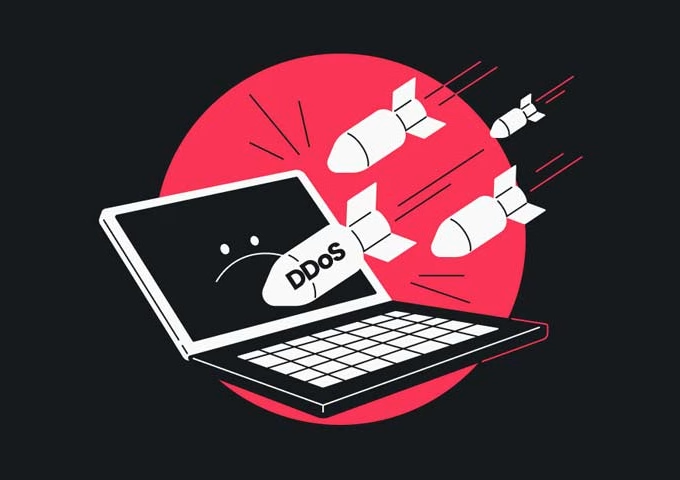Starting your own business can feel like a leap in the deep end. It’s a world full of excitement, passion, and the thrill of making your mark. But it’s also a world of uncertainties, doubts, and challenges.
Our aim with this guide is to route you through the maze of entrepreneurship, equipping you with the knowledge and tools you need on how to become a business owner. Every great business story starts with a first step – this could be yours.
Develop a Business Idea
A successful business starts with a unique, viable idea. This idea could be a product or service that meets an unfulfilled need in the market. Begin by brainstorming ideas while considering your passions and skills. Once you have an idea, research is crucial. Understand your market, identify potential competition, and gauge demand.
Explore who your customers might be and what they truly need. Feel free to find out how to refine your idea based on HedgeStone Business Advisors. A great business idea isn’t just about you or what you want – it’s about what the market wants and needs. This research and refinement is the foundation of your entrepreneurial journey.
It’s also important to stay realistic and not be too over-optimistic when you land the one golden idea. Do a deep analysis and convince yourself with data that the idea is good to go forward.
Create a Business Plan
Creating a thorough business plan is an essential step. It’s a blueprint for your business‘s future. When drafting your plan, consider the following key elements:
- Business Structure: Define the nature of your business. What are you? A sole proprietorship, partnership, corporation, or LLC?
- Marketing Strategy: Who are your potential customers? How will you reach them? Detail your marketing channels and tactics.
- Financial Projections: Provide estimates of future revenues, expenses, and profit. Be realistic but optimistic.
- Operations: Describe how your business will function day-to-day. Include supply chain details, staffing, and location.
This plan will help you navigate your business journey. It’s not static, though. Review and adjust it as your business grows and changes. It’s not just a start-up tool; it’s a guide for the life of your business.
Determine Legal Structure
Deciding on a legal structure for your business is a critical step. It determines aspects like taxes, the level of personal liability, and how your business will grow. Here are a few structures to consider:
- Sole Proprietorship: This is the simplest structure, where you, as the owner, are solely responsible for all liabilities and debts. It’s easy to set up, and you have full control, but the risk to personal assets is high.
- Limited Liability Company (LLC): This structure offers protection against personal liability. Profits and losses can be directly passed to your income without corporate taxes. But, it can be more complex and costly to set up.
- Corporation: This legal entity is separate from its owners, offering the most protection, but it’s complex and involves more regulations and tax requirements.
Choose a structure that aligns with your business goals, risk tolerance, and future vision.
Obtain Business Licenses and Permits
To take the next step to becoming a business owner, you need to ensure your business is legally recognized.
- Begin by registering your business name with the appropriate government agency. Your business name is integral to your brand identity, so choose carefully.
- Next, obtain the necessary licenses and permits. These depend on your location, industry, and the nature of your services or products. The requirements vary widely, and you may need federal, state, or local licenses—or a combination of all three.
- It’s crucial to research and understand what’s required to operate legally. Not doing so could result in hefty fines or even closure.
Open a Business Bank Account
Maintaining a clear distinction between personal and business finances is vital to becoming a business owner. One of the ways to achieve this is by setting up a business bank account. A dedicated account for your business transactions helps manage your finances effectively and adds credibility to your business.
Furthermore, it simplifies tax preparation as you can easily track income and expenses and protect your assets in case of legal disputes. When choosing a bank, consider fees, accessibility, and services offered. Take your time with a decision. Take your time to explore your options and select the one that best suits your business needs.
Research Funding Options
Securing adequate funding is crucial for your business to start and operate smoothly. Several options are available, depending on your needs and circumstances.
- Self-Funding: You could use your savings or assets if you prefer full control over your business. However, this does present a risk to your finances.
- Loans: Traditional bank loans or even Small Business Administration (SBA) loans can offer substantial funding, but they require good credit and often collateral.
- Grants: Some government agencies and organizations offer grants to small businesses, especially for innovative or socially beneficial ventures.
- Crowdfunding: Online platforms allow you to raise small amounts of money from many people. It’s a popular option for product-based businesses. Your product should be up to the mark for this to work.
- Investors: Venture capitalists or angel investors provide funds in exchange for a stake in your business. It’s a viable option if you anticipate rapid growth.
Launch Your Business
Once the groundwork is laid, it’s time to launch your business and truly join the ranks of business owners. Here’s a simple guideline:
- Order Supplies: Depending on your business type, you must order the necessary inventory, equipment, or supplies.
- Hire Employees: If you need staff, start the recruitment process. Ensure you comply with all labor laws and have the necessary insurance in place.
- Marketing Campaigns: Promote your business through various marketing strategies. This could include content marketing, social media advertising, or traditional advertising methods.
- Open to Customers: Open your doors (or website) to customers. This could be an official grand opening, a soft launch, or simply beginning operations.
Ongoing Operations
Effective operations management is key to success regardless of the business’s size. This encompasses several aspects:
- Manage Finances: Keep track of your revenue, expenses, and profitability. Regular financial audits and budget planning are essential for financial health and growth.
- Production: Ensure efficient and high-quality production. This could mean overseeing manufacturing processes, coordinating supplier relationships, or managing inventory.
- Customer Service: Excellent customer service will always set your business apart from competitors. Strive to provide a stellar customer experience through prompt response times, courteous communication, and effective problem resolution.
Conclusion
Becoming a business owner is multi-faceted, challenging, but ultimately rewarding. It requires meticulous planning, securing financing, effective marketing, and diligent management. However, with dedication, resilience, and a well-executed plan, your dream of becoming a business owner can become a reality.

















